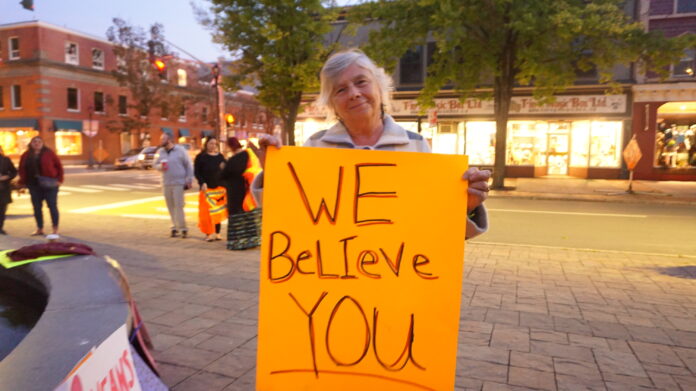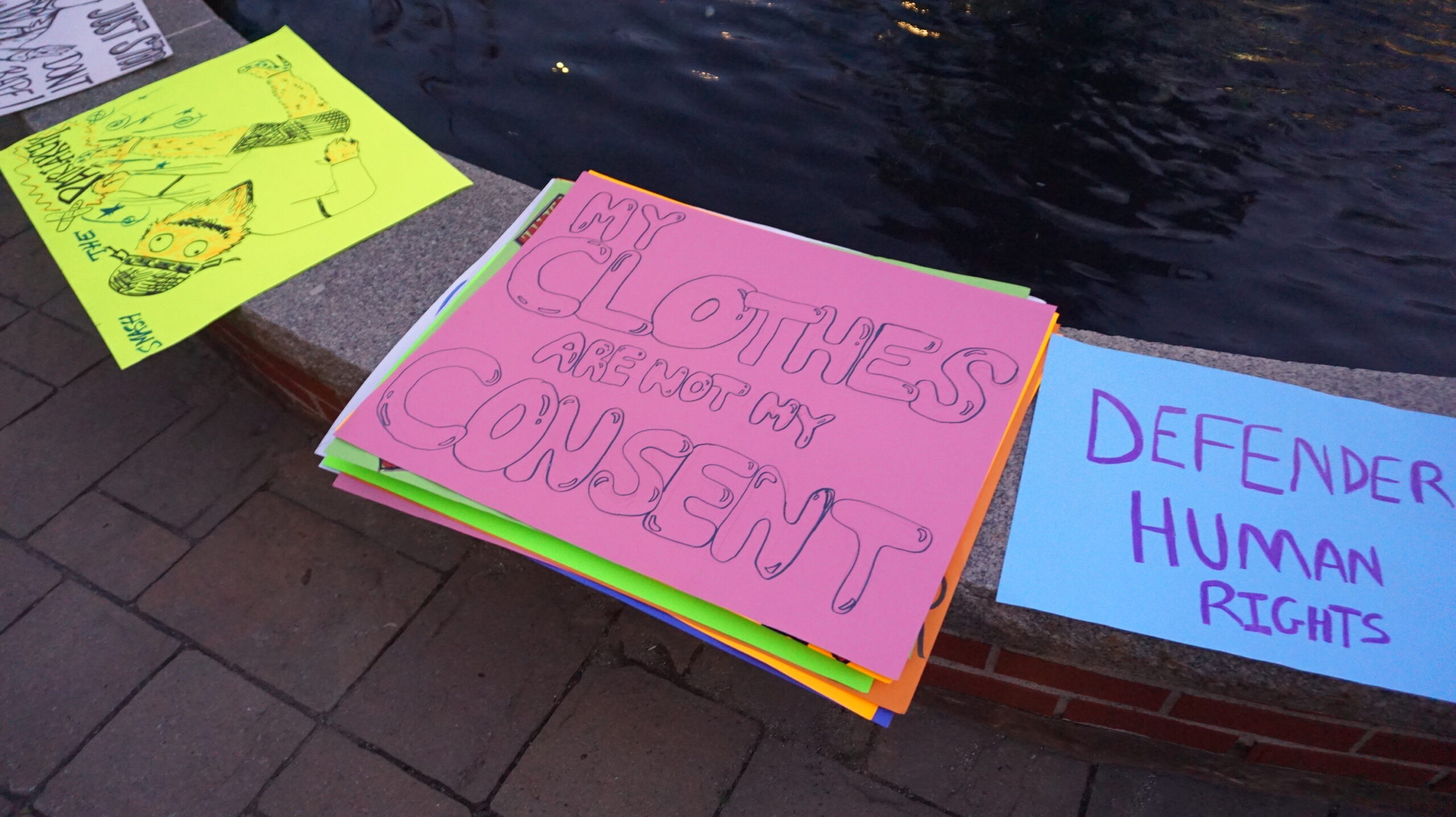
The annual Take Back The Night (TBTN) event has always been about promoting safe spaces, but this year, it was clear the focus was specifically on 2SLGBTQIA+ youth.
On Sept. 22, the march took attendees around downtown Fredericton chanting and waving signs against sexual violence. The signs displayed phrases such as “My clothes are not my consent” and “No Means No.” This year’s event also highlighted the 2SLGBTQIA+ youth with its theme “Safe as You Are.”
At Fredericton City Hall was Maggie Forsythe, the director of intervention services at Sexual Violence New Brunswick, the main organization behind TBTN. She said the movement is integral to the safety of cisgender women, yet it has failed trans and gender-diverse individuals in the past.
“Our sense of safety is profoundly influenced by the intersection of our gender, race, sexuality, ability and more,” she said in her speech. “It is essential that we expand our perspective and include all communities that are impacted by gender-based violence.”
Forsythe adds that trans and gender-diverse people are more vulnerable to violence than other groups. According to Statistics Canada in 2018, transgender Canadians are 22 per cent more likely to experience sexual or physical assault at least once after the age of 15 compared to their cisgender peers.
Among the other speakers was Nicki Lyons-MacFarlane, chair of Imprint Youth Association. They said the 2SLGBTQIA+ community has experienced an increase in hate over the last few years, alleging to receive verbal and online attacks for their identity.

But they said through community and education, change is possible.
“In coming together in events like this one, we show that we’re stronger together as a community,” said Lyons-MacFarlane. “Our voices are stronger together and together [we] create safer spaces where everyone has a chance to thrive, not just survive.”
Laura Noble, board member of Pride in Education, the advocacy group at the centre of Policy 713, encouraged attendees to think not only about having safe spaces but being a “safe person.”
“A safe space for youth means that there are adults and peers who are willing to step up … when they are being treated with outrageous disrespect — like their correct pronouns being ignored,” she said.
Related: ‘It absolutely crushed me’: Student reacts to school before, during, after Policy 713
One of the participants in the march was Chloe Colpitts, a second-year student at St. Thomas University. She found out about the event in one of her classes and attended with her friend.
“We are definitely raising awareness and hopefully we can maybe stop sexual violence from happening,” she said. “That’s a pretty high standard, but we can maybe see a decline in the way that sexual violence is happening.”
While holding a sign that read “We are not Ovary-reacting,” in reference to reproductive rights, she said she intends to major in criminology and become a non-profit lawyer in the future.
“I’ve looked to educate myself more rather than just sitting on the sidelines.”
While non-male attendees marched around the city, male-identifying people stayed behind to discuss allyship with White Ribbon Fredericton, a movement of men promoting the end to gender-based violence.
When the group returned to Fredericton’s City Hall, they were greeted with a musical performance by Sisters of the Drum, a collective of Indigenous women from Sitansisk (St. Mary’s First Nation).
“Together, we can and will make our communities safer, more inclusive and more just for everyone,” said Forsythe. “Thank you and let’s take back the night!”
Related: ‘There’s power in unity’: Take Back the Night returns after two years
